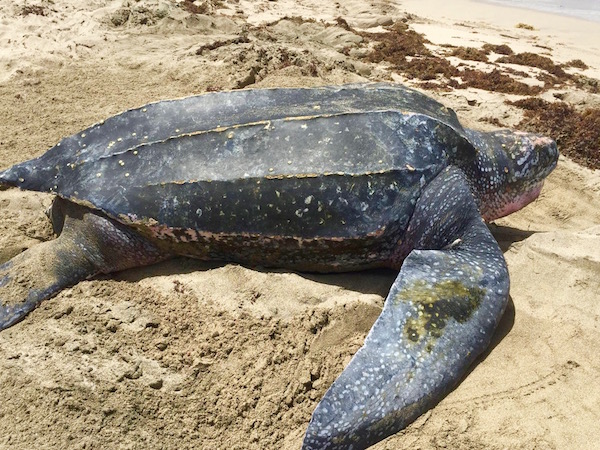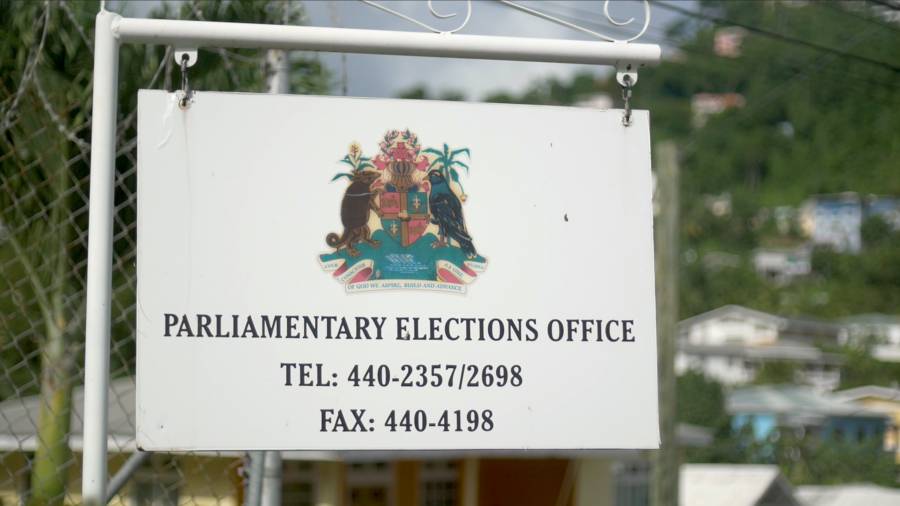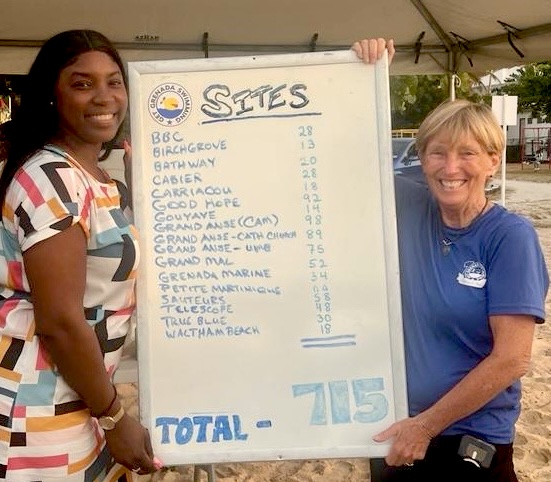by Dr Maia P Smith
You know that eating sea turtles is bad for the earth, but did you know it’s bad for you too?

When sea turtles feed on toxic algae, the poison accumulates in their bodies and is known as chelonitoxin.1 It doesn’t seem to bother the turtles, but people who eat that meat first get stomach pain, then they vomit, then they slip into a coma and might die.2
In one recent outbreak, ninety people were made seriously ill from just one feast of turtle meat. Six of them died.1 It happens all around the tropics2-4 and with most common species of turtle.4 That includes the ones we have in Grenada. Everywhere that people eat turtles they run the risk of being poisoned.
The only way to avoid chelonitoxin is to avoid turtle meat. Plain and simple. A poisonous turtle doesn’t taste or smell any different from one with no poison, and there’s no way to make the meat safe.3 Cooking won’t help.4 No herb will help. Likewise there’s no antidote: a hospital can help keep a poisoned person alive while they recover,1,3 but there’s no way to tell if they ever get well or they just get better. Nobody really knows what happens long-term. Maybe you get cancer; maybe you get dementia. For me and my family, it’s not worth finding out.
How dangerous is chelonitoxism to the average Grenadian fisherman? The Ministry of Health could not be reached for comment, but national MPA biologist Olando Harvey states “no one is aware or heard of any illness in humans that have consumed turtle meat on Grenada.” So it seems the risk is slight; but often people with foodborne illness don’t know they have it, especially if they don’t seek medical care. So, we really don’t know how common turtle poisoning is here. In any case, why take the risk?
Regardless, the turtles are worth more to us alive than dead. According to Grenada-based sea turtle research and conservation group Ocean Spirits Inc., “all sea turtles that forage and nest in Grenada are at risk of extinction.” All these species are on the International Union for the Conservation of Nature (IUCN)’s Red List of Threatened Species5: Leatherbacks as ‘Vulnerable,’ Green turtles as ‘Endangered’ and Hawksbills as ‘Critically Endangered.’ Many nations, including Caribbean island nations such as St Vincent and the Grenadines, have banned hunting sea turtles as well as the taking of their eggs. Ocean Spirits urges the Government of Grenada to strengthen legislation to fully protect all sea turtle species and their eggs year-round for the good of the environment, people and our economy.
Living turtles bring tourist dollars, keep the sea healthy, and even improve the beaches where they nest: dead ones do none of that and eating them might kill you. For me and my family, the choice is clear: leave the turtles in the sea where they belong. It’s better for the ocean, better for you, and better for Grenada.
References
- Kirschner, RI; Jacobitz, KL. Multiple fatalities following ingestion of sea turtle meat. NACCT Congress – September 23–26, 2011 POSTER SESSION III 169. Washington DC; 2011.
- Fussy, A; Pommier, P; Lumbroso, C; de Haro, L. Chelonitoxism: new case reports in French Polynesia and review of the literature. Toxicon 2007; 49(6): 827-32.
- Singh, SS; Biswas, AK; Shirley, P; Vijayachari, P. Chelonitoxism in Andaman and Nicobar Island: A report on mass poisoning including a death of an adult. Toxicon 2016; 2016 August(118): 61-3.
- Magnino, S; Colin, P; Dei-Cas, E; Madsen, M; McLauchlin, J; et al. Biological risks associated with consumption of reptile products. International Journal of Food Microbiology 2009; 134(2009): 163–75.
- International Union for the Conservation of Nature (IUCN) Red List of Threatened Species. https://www.iucnredlist.org
Dr Maia P Smith is an assistant professor of public health at St George’s University, where she teaches statistics and epidemiology, researches health behaviours, and guides students to perform their own research.
























It is easy for someone like Dr. Smith to say leave the turtles in the sea. But for a local fisherman not so much.
I am all for preserving the species, but to some people the sale of a turtle is a doctor fee, books for a son or daughter, or food on the table.
Let’s strive for understanding and balance!
What? What kind of reasoning is that? So if u sell a turtle to someone and its poisonous n they get sick or die. You would continue because it helps with your life expenses. What if a family member of yours bought poisonous turtle meat n got ill is it still ok in your eyes?.
That comment just comes across ad ignorance.